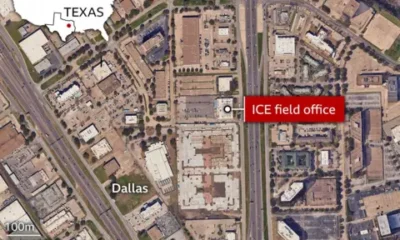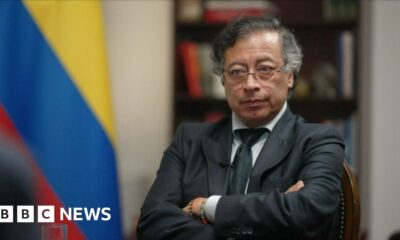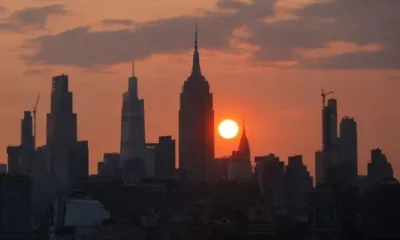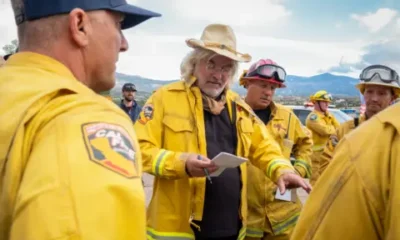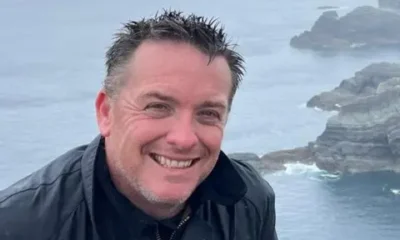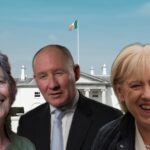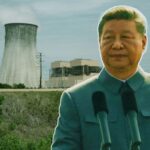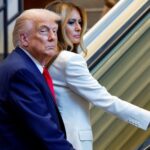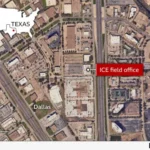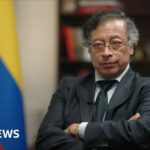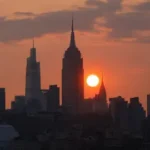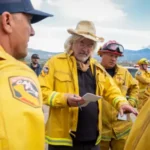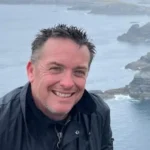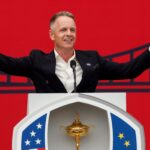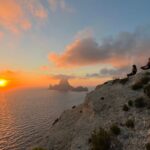Business
Russia will expand aggression beyond Ukraine if not stopped, Zelensky warns
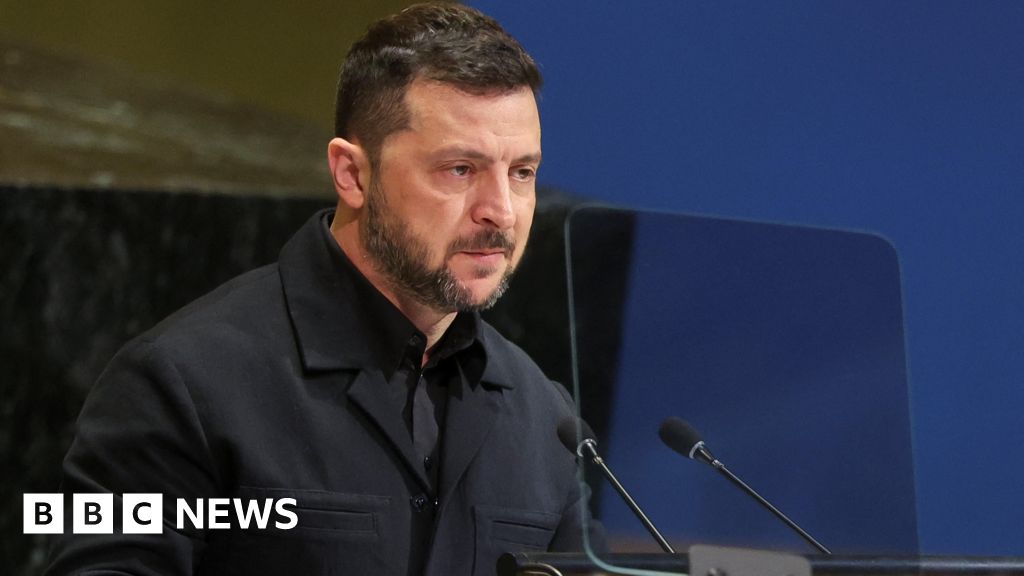
This post was originally published on this site.
Vladimir Putin “will keep driving the war forward wider and deeper” if he is not stopped, Ukraine’s President Zelensky has warned.
Speaking at the UN’s General Assembly in New York, Zelensky said more countries would be met with Russian aggression unless allies displayed a united front and ramped up support.
He said all nations were threatened by a global arms race, as military technology advances, adding that “weapons decide who survives” and calling for global rules on AI.
His comments come after US President Donald Trump shifted his position on the Russia-Ukraine war, saying for the first time that Ukraine could win back all of its land.
Zelensky criticised international institutions, suggesting they are “too weak” to offer Ukraine safety guarantees, adding – in apparent reference to Nato – that being part of a long-standing military alliance “doesn’t automatically mean you are safe”.
“We are now living through the most destructive arms race in human history,” he said.
He argued that “stopping Russia now” was cheaper than “wondering who will be the first to create a simple drone carrying a nuclear warhead”.
Zelensky called for international rules around AI and its role in weaponry, and said the development of autonomous drones and unmanned planes represented a far greater risk than traditional warfare.
The Ukrainian leader also warned that Europe cannot afford to lose Moldova – which lies between Ukraine and EU-member Romania – to Russian influence. He said the West had missed a chance to save Georgia and Belarus from Putin’s orbit.
On Thursday the pro-EU president of Moldova, Maia Sandu, accused the Kremlin of “pouring hundreds of millions of euros” into Moldova in an attempt to instigate violence and spread fear.
Voters in the former Soviet republic go to the polls on Sunday, amid what a BBC investigation found to be a barrage of disinformation spread by a network with ties to Moscow.
Last week, Estonia and Poland requested a consultation with other Nato members after Russia violated its airspace in separate incidents. Romania, another Nato member, also said Russian drones breached its airspace.
Earlier on Tuesday, following his speech to the UN, Trump said Nato nations should shoot down Russian planes breaching their airspace, following the recent incursions by Russian fighter jets and drones.
Zelensky praised Donald Trump and said he had a “good meeting” with the US president.
On Tuesday, he told reporters he understood the US was willing to give Ukraine security guarantees after the war is finished.
Pressed on what this would look like, he said he did not have specific details but broached the possibility of more weapons, air defences and drones.
Trump’s suggestion on Tuesday that Kyiv could win, with support from the EU and Nato, marked an apparent U-turn after his previous comments that Ukraine would have to accept “land swaps” as a condition of peace.
The US president also described Russia as a “paper tiger” that had been “fighting aimlessly in Ukraine.”
Kremlin spokesman Dimitry Peskov responded: “Russia is in no way a tiger. It’s more associated with a bear. And there is no such thing as a paper bear.”
Peskov told reporters the US president had made the comments “apparently under the influence of the vision put forward by Zelensky”.
“This vision is in absolute contrast with our understanding of the current state of affairs.”
US Secretary of State Marco Rubio held a meeting with his Russian counterpart Sergei Lavrov on Wednesday, marking the highest-level US encounter with Russia since Trump invited Putin to Alaska last month.
According to a brief statement from the US State Department, Rubio reiterated Trump’s “call for the killing to stop and the need for Moscow to take meaningful steps toward a durable resolution of the Russia-Ukraine war”.
The Kremlin did not immediately comment on the meeting.
Business
‘Anti-ICE’ message on ammunition at Dallas shooting that killed immigration detainee
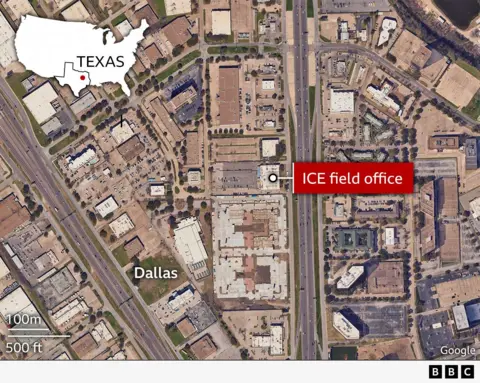
Read full article on post.
Ben HattonWashington DC
A detainee has died and two others are critically injured after a rooftop sniper opened fire at an Immigration and Customs Enforcement (ICE) centre in Dallas, Texas, officials say.
The gunman fired indiscriminately at the ICE facility and at a nearby unmarked van, law enforcement officials say, before dying from a self-inflicted gunshot wound.
No law enforcement were injured. FBI Director Kash Patel posted a photo on X of unused ammunition recovered from the scene. One casing has the phrase “ANTI-ICE” on it.
It is the latest in a string of attacks on ICE facilities in recent months as the agency ramps up efforts to deliver on US President Donald Trump’s pledge for mass deportations.
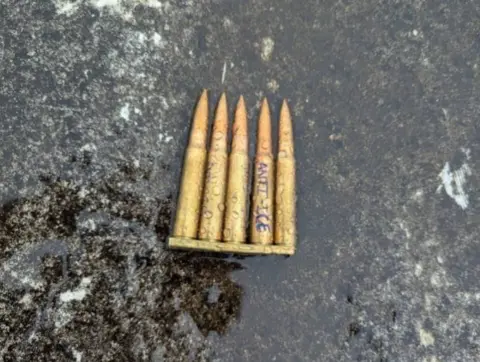 Kash Patel/FBI
Kash Patel/FBI“While the investigation is ongoing, an initial review of the evidence shows an ideological motive behind this attack,” Patel wrote on X.
“These despicable, politically motivated attacks against law enforcement are not a one-off.”
Dallas police said officers responded to an assist officer call at the facility around 06:40 local time (11:40 GMT).
The Department of Homeland Security (DHS) said three detainees were shot. One has died, and two were critically injured, it said. They remain in critical condition, officials later said.
The department had initially said two people had died in addition to the shooter, only to revise that information conditions hours later.
One injured detainee is a Mexican national, the Mexican foreign ministry said.
Acting ICE director Todd Lyons identified the shooter as 29-year-old Joshua Jahn, the BBC’s US partner, CBS News reported. He died of a self-inflicted gunshot wound, authorities said.
Voter records indicate he was registered as an independent and last voted in the general election in 2024.
Jahn had cannabis related charges in Texas dating back to 2016, according to records seen by the BBC.
FBI special agent Joe Rothrock told a news conference that rounds found near the gunman contained “messages that are anti-ICE in nature”.
“This is just the most recent example of this type of attack,” he said, adding the FBI was investigating it as “an act of targeted violence”.
Dallas police said a preliminary investigation determined the suspect had opened fire from an adjacent building.
“The shooter fired indiscriminately at the ICE building, including at a van in the sallyport where the victims were shot,” DHS said in a statement.
The Reuters news agency reported that the building targeted is an ICE field office used for short-term processing of recently arrested detainees, and is not used as a detention facility.
Lyons told CBS News on Friday evening that the shooter deliberately targeted law enforcement with a “high-powered rifle”.
He said given the time are area of the shooting, it could have been more deadly.
The suspect “could have, in his indiscriminate fire, hit people traveling to work, civilians on the ground,” he said.
Edwin Cardona, a Dallas resident from Venezuela, told local media he was entering the building for an appointment when he heard gunfire.
“I was afraid for my family because my family was outside. I felt terrible because I thought something could happen to them. Thank God no,” he said.
Acting director of the Dallas ICE office Joshua Johnson told the news conference it was the second time he has had to stand in front of the media and talk about a gunman at one of his facilities.
“The takeaway from all of this is that the rhetoric has to stop,” he said.
Texas Senator Ted Cruz also spoke at the news conference, condemning “politically motivated violence”.
“Your political opponents are not Nazis,” he said, urging people not to demonise each other for partisan reasons. “The divisive rhetoric, tragically, has real consequences.”
While the shooter’s motive remains unclear, the attack comes amid growing concerns in the US about political violence in the wake of the killing of conservative activist Charlie Kirk this month.
US President Donald Trump, in a lengthy post on social media on Friday evening, said ICE officers are facing “an unprecedented increase in threats” and accused “Radical Left Democrats” of “constantly demonizing Law Enforcement”.
Trump noted on Monday he signed an executive order designating Antifa a terrorist organisation, and added he would sign another this week to “dismantle these Domestic Terrorism Networks”.
No information has been released by officials to suggest Antifa – a loosely organised, leftist movement that opposes far-right, racist and fascist groups – has any connection to the shooting.
Homeland Security Secretary Kristi Noem said in a statement: “This shooting must serve as a wake-up call to the far-left that their rhetoric about ICE has consequences.”
Democratic lawmakers also condemned the shooting, including Senator Cory Booker who called it “an unacceptable act of violence”.
“While we don’t know all of the details yet, what we can, and all should, agree on is that the vilification of any group of people endangers them. It makes them targets. And it must stop,” he said on X.
Republican Governor of Texas Greg Abbott said on X the shooting would “NOT slow our arrest, detention, & deportation of illegal immigrants”.
The ICE field office in Dallas has been targeted by a series of protests this summer.
A man was arrested in August after he entered the facility claiming to have a bomb in his backpack, according to the DHS.
The 36-year-old US citizen, Bratton Dean Wilkinson, had shown the building’s security staff a device on his wrist that he described as a bomb “detonator,” the DHS said.
Last month shots were fired at ICE offices in San Antonio, Texas. No injuries were reported in that incident, which ICE blamed on “political rhetoric”.
Another shooting occurred on the 4 July public holiday at an ICE facility in Alvarado, Texas, after a protest escalated into a face-off with police. An officer was shot in the neck, and survived. Eleven people have been charged over that attack.
Business
Colombia’s president calls US attacks on alleged drug boats ‘act of tyranny’
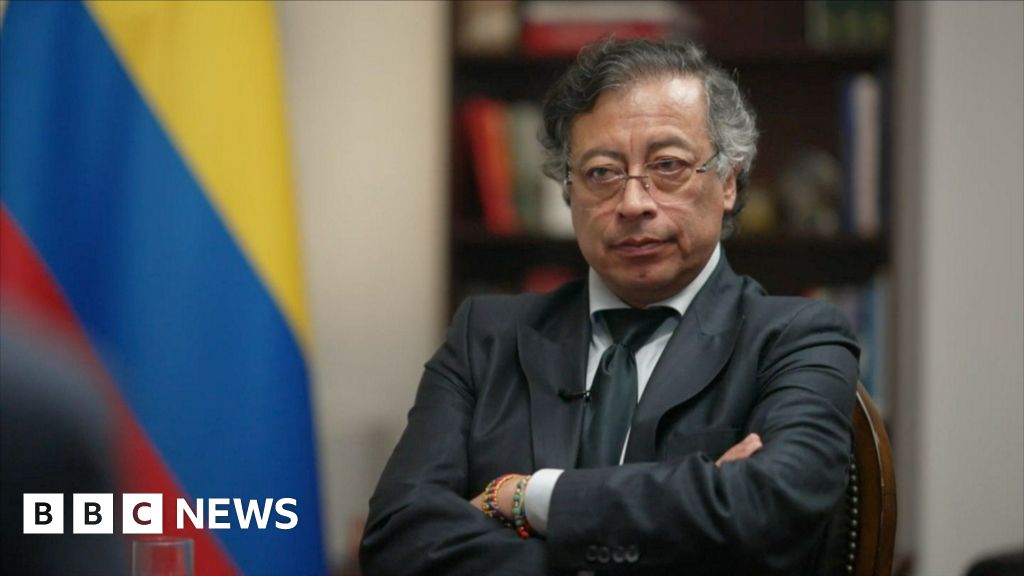
Read full article on post.
US airstrikes on alleged drug-trafficking boats in the Caribbean Sea are an “act of tyranny”, Colombia’s President Gustavo Petro told the BBC in an interview where he also called for criminal proceedings against US officials if investigations find Colombians were killed in the attacks.
President Donald Trump has cast the strikes, which have reportedly killed 17 since they began this month, as needed to stop the flow of fentanyl and other illegal narcotics into the US.
Legal experts and lawmakers, though, have questioned if they violate international human rights laws.
“Why launch a missile if you could simply stop the boat and arrest the crew?” said Petro. “That’s what one would call murder.”
Speaking to the BBC on Wednesday, Petro said there should be “zero deaths” in stopping speedboats believed to be involved in drug smuggling.
“We have a long history of collaborating with American agencies and other agencies of carrying out maritime seizures of cocaine,” he said. “No one has ever died before. There is no need to kill anyone.”
He added that the principle of the proportionality of force is violated “if you use anything more than a pistol”.
The strikes in international waters have primarily focused on Colombia’s neighbour Venezuela, according to the Trump administration, but the US has provided little details about the targets and the individuals killed, and its reports that members of the Tren de Aragua gang were on the first attacked boat are in dispute.
Democratic lawmakers in Washington have demanded answers from the White House over the legality of the strikes, which United Nations experts have described as extrajudicial executions.
Asked about Petro’s comments, the White House said Trump was “prepared to use every element of American power to stop drugs from flooding into our country and to bring those responsible to justice”.
In the interview, conducted in New York where dignitaries from around the world have gathered for an annual high-profile United Nations meeting, Petro also accused the Trump administration of humiliating his people and said South American nations like his would not “bow down to the king”.
After returning to office in January, Trump toughened his talk, as well as his trade policies, for all of Latin America as he began a major deportation sweep of people he says have illegally crossed the US southern border.
Earlier this year he began designating some Latin American criminal gangs and drug cartels as foreign terrorist organisations.
Petro has repeatedly sparred with his US counterpart. Pressed on whether he now risked further isolating his country, Petro said it was Trump who was isolating the United States with his foreign policies.
“Trump had already insulted me during a presidential campaign, he called me a terrorist,” he said.
Business
America’s blame game over Canada’s wildfire smoke misses the point, experts say
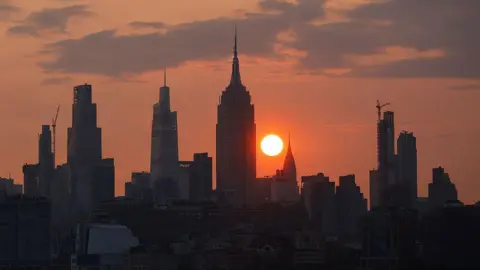
Read full article on post.
Nadine YousifSenior Canada reporter
As deadly wildfires raged in the Canadian province of Manitoba this summer, Republican lawmakers in nearby US states penned letters asking that Canada be held accountable for the smoke drifting south.
“Our skies are being choked by wildfire smoke we didn’t start and can’t control,” wrote Calvin Callahan, a Republican state representative from Wisconsin, in a letter dated early August.
Callahan, along with lawmakers from Iowa, Minnesota and North Dakota, filed a formal complaint with the US Environmental Protection Agency (EPA) urging an investigation into Canada’s wildfire management.
Manitoba premier Wab Kinew quickly condemned the move, accusing the lawmakers of throwing a “timber tantrum” and playing “political games”.
By August, the wildfires had scorched more than two million acres in Manitoba, forced thousands to evacuate, and killed two people – a married couple who authorities said were trapped by fast-moving flames around their family home.
As September draws to a close, data shows that 2025 is on track to be Canada’s second-worst wildfire season on record.
A study published in the Nature journal in September has revealed that smoke from Canada’s wildfires has also had far-reaching, fatal consequences. It estimates that the 2023 wildfires – the country’s worst on record by area burned – caused more than 87,500 acute and premature deaths worldwide, including 4,100 acute, smoke-related deaths in the US and over 22,000 premature deaths in Europe.
Wildfire smoke contains PM2.5 – a type of air pollution – that is known to trigger inflammation in the body. It can exacerbate conditions like asthma and heart disease, and, in some causes, can damage neural connections in the brain.
“These are big numbers,” said Michael Brauer, a professor at the University of British Columbia who co-authored the study. He added the findings show wildfire smoke should be treated as a serious health issue, akin to breast cancer or prostate cancer.
For some American lawmakers, the blame falls squarely on Canada.
“Canada’s failure to contain massive wildfires,” Callahan wrote in August, “has harmed the health and quality of life of more than 20 million Americans in the Midwest.”
Their complaints raise the question: Could Canada be doing more to curb its wildfires – and by extension, their smoke?
Climate and fire experts in both countries told the BBC that the answer is largely no.
“Until we as a global society deal with human-cased climate change, we’re going to have this problem,” said Mike Flannigan, an emergency management and fire science expert at Thompson Rivers University in British Columbia.
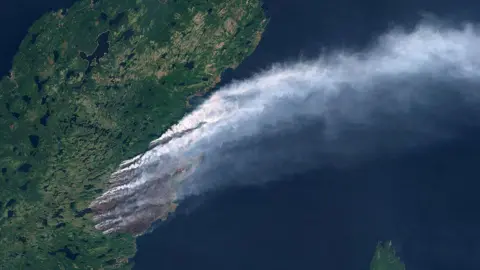 Gallo Images/Orbital Horizon/Copernicus Sentinel Data 2025
Gallo Images/Orbital Horizon/Copernicus Sentinel Data 2025Metrics show Canada’s wildfires, a natural part of its vast boreal forest, have worsened in recent years. Fire season now starts earlier, ends later, and burns more land on average. The 2023 fires razed 15 million hectares (37 million acres) – an area larger than England – while the 2025 blazes have so far burned 8.7 million hectares (21.5 million acres).
As of mid-September, there are still more than 500 fires burning, mostly in British Columbia and Manitoba, according to the Canadian Interagency Forest Fire Centre.
Roughly half of Canada’s wildfires are sparked by lightning, while the rest stem from human activity, data from the National Forestry Database shows. Experts warn that hotter temperatures are making the land drier and more prone to ignition.
Wildfires are not only worsening in Canada. The US has recently seen some of its most damaging blazes, including the 2023 Hawaii wildfires that killed at least 102 people, and the Palisades fire in January, the most destructive in Los Angeles history.
Both countries have struggled to keep pace, often sharing firefighting resources. Canadian water bombers were deployed in California this year, while more than 600 US firefighters travelled north to assist Canada, according to the US Forest Service.
In Canada, strained resources – and worsening fires – have fuelled calls for a national firefighting service. Wildfire emergency response is currently handled separately by each of the provinces and territories.
“The system we have right now worked 40 years ago. Today? Not so much,” argued Mr Flannigan.
Others propose controlled burns, a practice used in Australia and by indigenous communities, as a solution, though these fires would still generate smoke. Some argue for better clearing of flammable material in forests and near towns, or investing in new technology that can help detect wildfires faster.
Some of that work is already underway. In August, Canada pledged more than $47m for research projects to help communities better prepare for and mitigate wildfires.
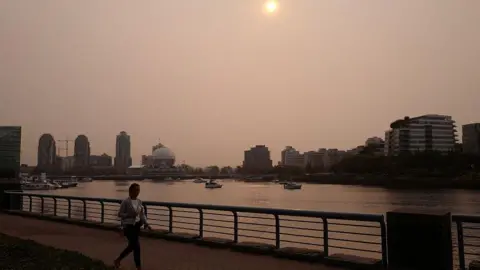 Getty Images
Getty ImagesStill, experts like Jen Beverly, a wildland fire professor at the University of Alberta, warn there is little Canada can do to prevent wildfires altogether.
“These are high intensity fire ecosystems” in Canada, she said, that are different from fires in Australia or the US. “We have very difficult fires to manage under extreme conditions, and we’re seeing more of those because of climate change.”
With a warmer climate, Prof Beverly said attention should be paid to pollution. She noted that the US is the second-worst carbon emitter in the world behind China. “I mean, we should be blaming them for the problem,” she argued.
In recent months, the Trump administration has also rolled back environmental policies designed to reduce emissions, and has withdrawn the US from the Paris climate accords.
Sheila Olmstead, an enviromental policy professor at Cornell University, noted that Canada and the US have a history of cooperation on pollution and climate, including an air quality agreement signed by the two in 1991 to address acid rain.
“It was a very clear framework for addressing the problem, and that’s what seems to be missing here,” Olmstead told the BBC. Both countries, she said, would benefit from working together on wildfires instead of trading blame.
As for the EPA complaint, it is unclear what the agency could do to address the US lawmakers’ concerns. In a statement to the BBC, the EPA said it is reviewing it “and will respond through appropriate channels”.
Prof Brauer said the data in his study shows that even though the fires are burning in Canada – often in remote areas – their impact can reach far beyond.
The findings, he told the BBC, call for a re-framing of how the consequences of climate change are understood.
“The effects of a warmer climate are localised, and there are winners and losers,” Prof Brauer said. “But this is an illustration that some of these impacts are becoming global.”
He argued that the US lawmakers’ complaints are an “unfortunate distraction,” and that the focus should instead be on collaboration and learning how to “live with smoke”.
“This stuff isn’t going away,” Prof Brauer said, adding that there are ways to prevent future deaths if there is a will to adapt.
-
Culture2 days ago
Taylor Swift’s new cinema outing generates more than €12million in just 24 hours
-
Politics2 days ago
European Parliament snubs Orbán with vote to shield Italian MEP from Hungarian arrest
-
Culture1 day ago
Milan Fashion Week 2025: Unmissable shows and Giorgio Armani in mind
-
Opinion2 days ago
Fintan O’Toole: How can you live with the knowledge that you have facilitated mass murder?
-
Health2 days ago
EU renews support for WHO’s Universal Health Coverage Partnership
-
Opinion2 days ago
AI Is Pointless If It Doesn’t Boost Productivity
-
Business17 hours ago
Households to be offered energy bill changes, but unlikely to lead to savings
-
Culture3 days ago
Marvel stars Mark Ruffalo and Pedro Pascal stand up for Jimmy Kimmel as Disney boycott intensifies


